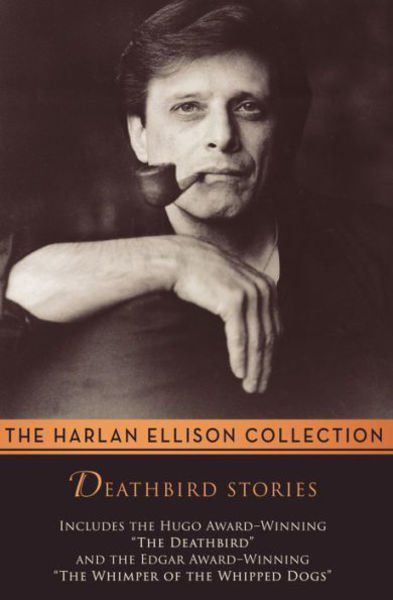BOOK REVIEW: Deathbird Stories by Harlan Ellison
Published 10:00 am Saturday, July 7, 2018

- Deathbird Stories
Finding Harlan Ellison books in a Clearwater, Fla., Barnes & Noble was a rare treat a couple of weeks ago.
Decades past, in the days of my youth, Ellison’s books were easily available in book stores and on store paperback racks.
Heady short stories of alternative realities, of gritty perspectives, all with wonderful titles such as “The Beast That Shouted Love at the Heart of the World,” “I Have No Mouth and I Must Scream,” “‘Repent Harlequin!’, Said the Tick-Tock Man,” “Hitler Painted Roses,” “Strange Wine,” “The Wine Has Been Left Open Too Long and the Memory Has Gone Flat,” “The Boulevard of Broken Dreams,” “Lonely Women are the Vessels of Time,” “Jeffty Is Five,” “Love Ain’t Nothing But Sex Misspelled,” “Count The Clock That Tells The Time,” “Alive and Well and on a Friendless Voyage,” “All The Lies That Are My Life,” “The Man Who Was Heavily Into Revenge.”
But as the years passed, his books disappeared from book store shelves, they fell out of print, his place on the fantasy and science-fiction aisles vanished. Battered and tattered Harlan Ellison paperbacks can still be found in used book stores but even that has become a rarity.
A shame.
So, finding unused volumes on the shelf of a bookstore, even when I have some of the included stories in the old paperbacks on my personal bookshelves, was a wonderful surprise.
I bought “Deathbird Stories,” a collection of stories built around the theme of new gods for a modern age, or old gods in the face of their twilight. That’s the fantasy aspect. In truth, the stories are about people and their base needs, lusts, addictions, greed … about the meaning of their lives …
About their deaths …
Late last month, Ellison died in his sleep. He was 84.
He won a massive amount of awards. He inspired a ridiculous number of writers. He penned thousands of stories. He was a master of short stories.
He was cantankerous and often embattled in ongoing feuds with numerous people – he even had a group whose members touted being his enemies. Yet, he regularly called journalists in small towns who wrote reviews about his books or stories about him.
I had saved “Deathbird Stories” to read last weekend.
Instead of a celebration of having found one of his books again in a bookstore, reading the stories became a commemoration of his passing and in some ways another goodbye to a part of my youth.
The only complaint about “Deathbird Stories” is the volume doesn’t include the traditional introductions that Ellison wrote for each of his stories in volume after volume of past short-story collections. Sometimes, the introductory explanation of how he came to write a story was better and longer than the story itself.
The absence of his story-by-story introductions were all the more poignant last week.
Harlan Ellison silenced.
But his stories remain vital and relevant.
Harlan Ellison lives.





